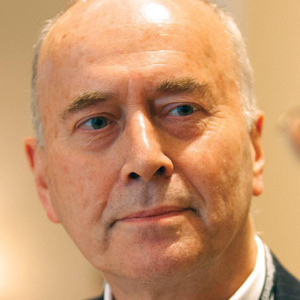Australia the world ‘standout’ in 20-year pensions study
by Greg Bright
Australia is the number one “standout” pensions market in the world over the past 20 years, according to no less a body than the Thinking Ahead Institute and Willis Towers Watson’s Roger Urwin. “Australian super funds deserve particular plaudits,” a new report says.
Roger Urwin, the global head of investment content at Willis Towers Watson, ranked his “top six standouts” from 20 years of ‘Global Pensions Asset Study‘, the report published this month. They are, in order:
#1 pensions market – Australia. The Australian super funds deserve particular plaudits; the 20-year growth in pension assets in Australia has been 12.1 per cent per annum. The critical features in this success have been government-mandated pension contributions, a competitive institutional model and the dominance of DC (defined contribution).
#1 pension design – defined contribution: the 20-year growth of DC in the seven largest countries for pensions (P7 – of which Australia is fourth) has been 7.5 per cent per annum relative to 4.9 per cent per annum for DB (defined benefit). DC has worked better for employers who have declining appetite for taking pension risk during this 20-year period.
#1 asset class – private assets: The asset allocation to real estate, private equity and infrastructure in the 20-year period has moved from about 4 per cent to around 20 per cent. Alternatives have been attractive for return reasons, offsetting their governance difficulties.
#1 meme – governance: The governance of pension funds has been a growing source of attention fanned by successive industry reviews – ERISA in the US, Myners in the UK and Cooper in Australia. Pension governance is a lot stronger than 20 years ago.
#1 missed opportunity – stewardship: The 20-year story is one of missing the opportunity to influence and mitigate corporate misalignments – like executive pay and other poor leadership and boardroom practices.
#1 no-show – technology: The technology impacts on pension funds have been surprisingly light as evidenced by legacy systems that rely heavily on spreadsheets. The prioritisation of technological innovation hasn’t changed much over the 20 years.
But there are a couple of warnings for Australia in the report, on top of the general warning on technology. For instance, while Australia has by far the highest proportion of DC funds of the major countries – 83 per cent – our average asset allocation for super funds to cash is also by far the highest – 15 per cent.
And in a footnote, the researchers observe that “existing contribution rates as well as the fact that retirees can cash in all their benefits (that is: no compulsion to lock in or annuities) can have a significant impact on expected asset growth in Australia”.
On technology, while the report does not say this, it is clear from many suppliers of new super and funds management technology that the spend by the commercial funds has outstripped that of the not-for-profit sector for years.
The Thinking Ahead Institute is a global not-for-profit group whose aim is to influence change in the investment world for the benefit of the end saver. The Institute’s members comprise asset owners, investment managers and other groups that are motivated to influence the industry for the good of savers worldwide. It is an outgrowth of Willis Towers Watson Investments’ Thinking Ahead Group. Roger Urwin, Tim Hodgson, Bob Collie, Liang Yin and Marisa Hall are the Thinking Ahead Group researchers.










